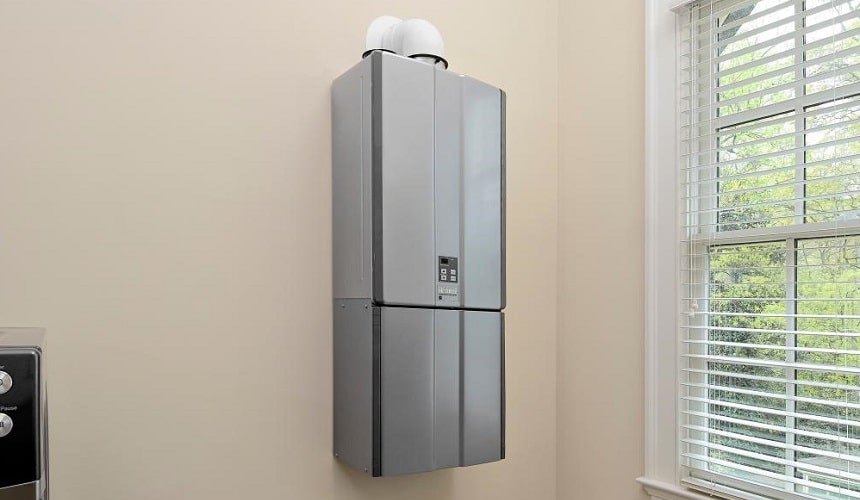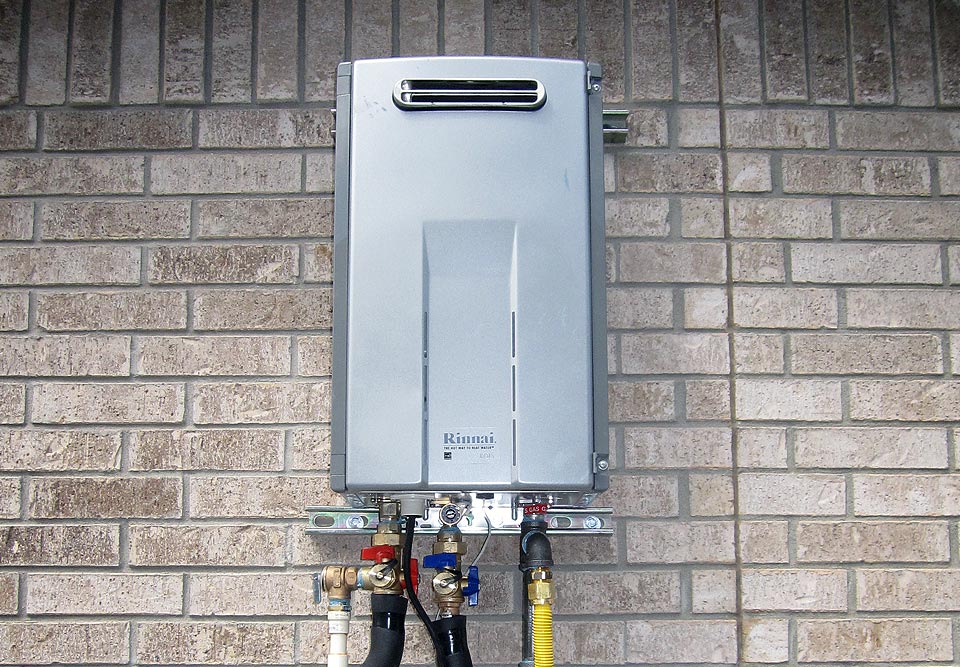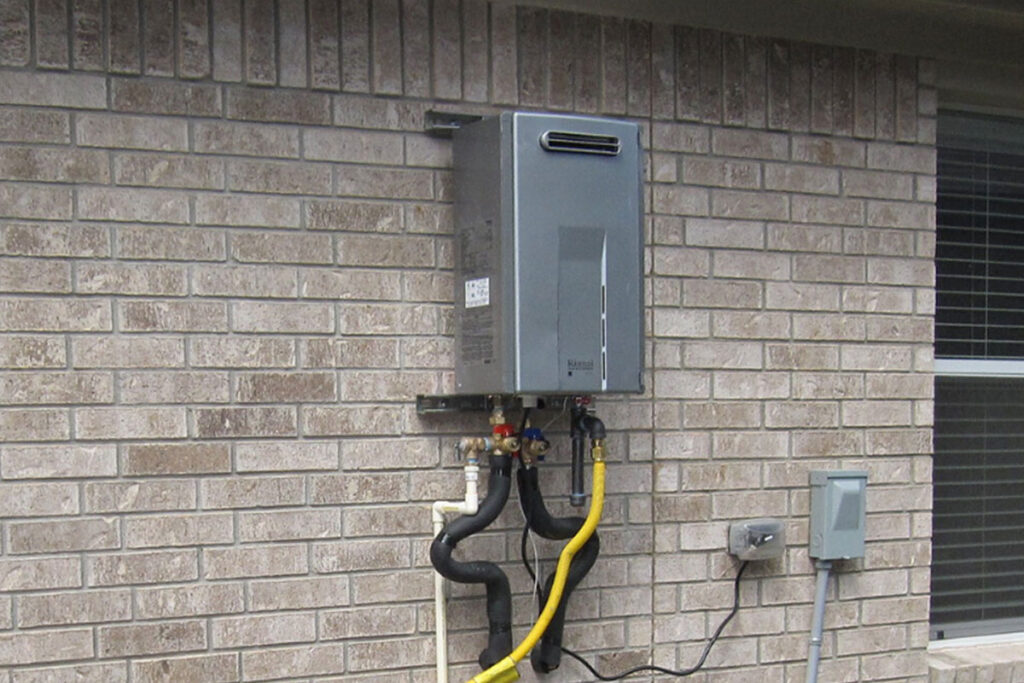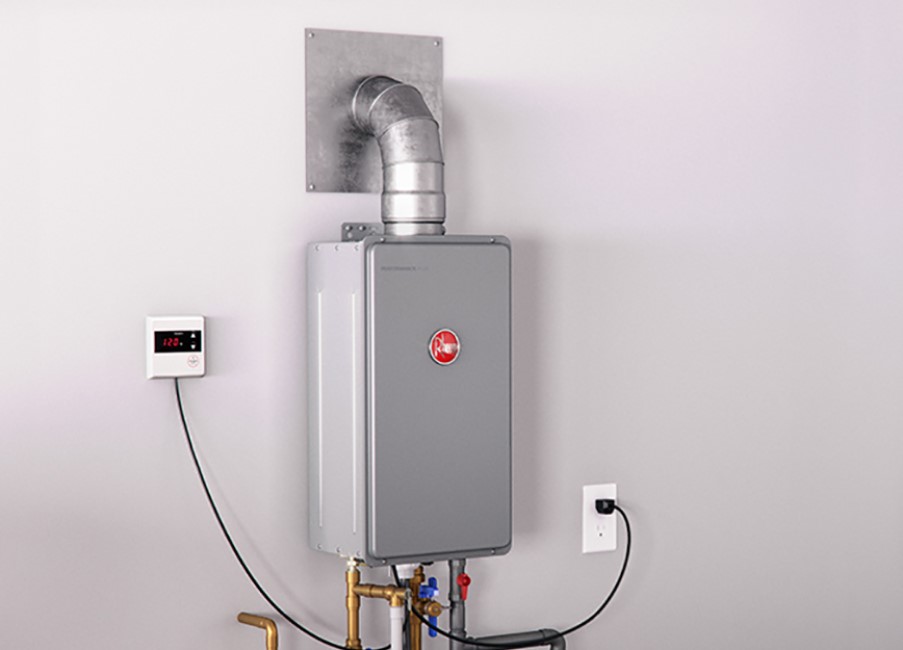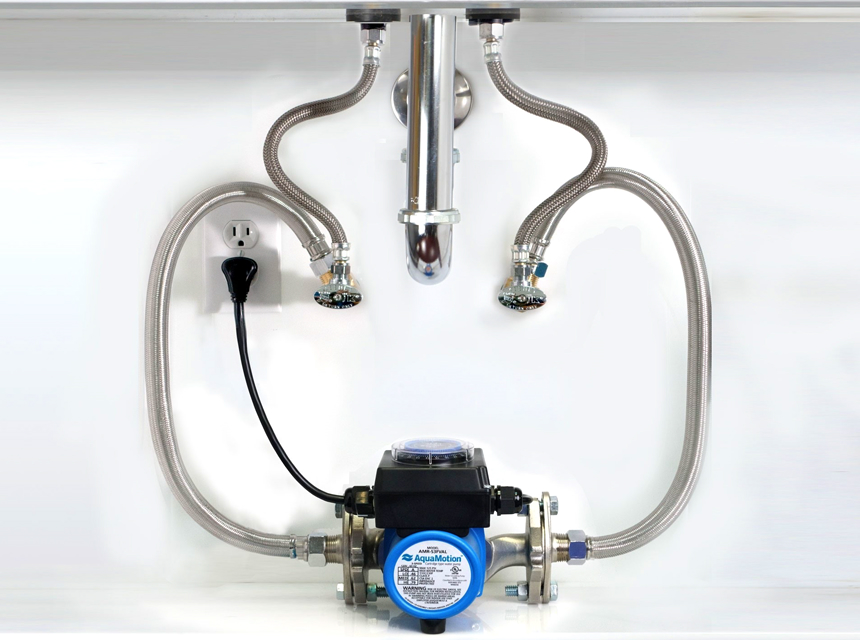

We’re known to ignore water heaters till the need for them is duly pressing. And when we do pay attention to them, we discover that we have no detailed info on what to buy and what doesn’t add up with our resources. Water heaters consume a significant part of our budget; for this reason, it’s essential to be informed by doing research and reading guides like this one. That will make us confident about making the right choices even if we won’t be purchasing any other for a couple of years.
The heaters out there perform basically similar functions, but they’re categorized into different classes for a reason. According to
Wikipedia
Trusted Source
Storage water heater - Wikipedia
A storage water heater, or a hot water system (HWS), is a domestic water heating appliance that uses a hot water storage tank to maximize water heating capacity and provide instantaneous delivery of hot water. Conventional storage water heaters use a variety of fuels, including natural gas, propane, fuel oil, and electricity. Less conventional water heating technologies, such as heat pump water heaters and solar water heaters, can also be categorized as storage water heaters.
en.m.wikipedia.org
, the types of water heaters are classified with regard to their energy source. If you’re on the verge of purchasing a new unit, then read along, as this article is prepared to give you a helping hand and ensure that you select the best water heater based on your preferences. In addition, you can read about the best water chiller, since there is usually little information about them either.
Storage tank heater is the most popular type of hot water heaters amongst its variants. It’s found in most standard homes, and it can work with different energy sources. As the main feature is the tank, its overall operability and usability percentage depend on how high its storage capacity is. The amount of heated water available for use at a point in time is hugely based on the number of gallons the tank can hold.
As it is well insulated and cushioned, you can be sure that your water is kept warm till usage. One of the exciting features of this model is its two control valves—pressure and temperature. While the former maintains the preset PSI (about 150) by opening when it exceeds, the latter ensures that the temperature is regulated when it hits anything above 120°F.
Expect long term use if you take time to maintain them. You have to clean the inside regularly to reduce rusting and corrosion.
Conventional tank heaters are about the most affordable and easy to set up. You also get to have heated water available ahead of time.
As the quantity of water depends on the tank, lesser capacity heaters can only hold a little at a time. This means you’ll have to wait for about an hour so it can restart its heating cycle before you can get more.
This type of water heater uses a mechanism that is quite different from the conventional storage heaters’ as it doesn’t come with a tank. It’s called on-demand as it has inbuilt electric coils that heat your water at a rate faster than its counterparts, providing you what you need at a go.
This is one of the best water heaters for large families, as it can serve all members at once. But of course, there are different types of tankless water heaters, so you have to choose the size that will meet your demands. If your energy source is natural gas, then you can only go with medium-sized, and that results in less water for use. However, if you need heated water running in your taps and showers, larger sizes that require a stable gas line is the ideal choice.
Some models work with electricity, but like other electric water heaters, they increase your power consumption and skyrocket your bills. If you’re okay with the budget, then you can check out some of the best electric tankless water heaters. But if the medium-sized are convenient, here are the best gas tankless water heaters.
Although its parts are hard to get to (due to their small sizes), it is essential to clean them once in a while to improve their life expectancy.
Its superheated coils is not a feature you’ll see in all water heaters. This ensures that you get heated water as much as you need them. Coupled with top-notch functionality, they also require less space than their tanked counterparts; for example, this Stiebel Eltron Tankless Water Heater measures only 4 x 16 x 14 inches.
Purchasing a tankless water heater is bank-breaking when compared to other types. And the fact that larger sizes need larger gas lines or consume a high amount of electricity only increases the budget.
Hybrid water heaters are one of the different types of water heaters out there. If you’re an advocate of power conservation, you might want to check out this. They’re also called heat water pumps as their mechanism of action involves absorbing heat from the surrounding (air and ground) and then use it to warm up your water. Energy consumption is reduced by 60%, as the only time electricity is needed is during the process of transferring the trapped heat to the pump. Therefore, with a hybrid water heater, your power bills will be down the chart.
While its style is all nice and good, it’s pretty expensive than the “all-electric” type of heater. It also requires a significant amount of space, about 8ft vertically, and you need a channel to drain condensed heat.
Maintenance is much needed as a hybrid water heater is tanked. To ensure hassle-free usability throughout its lifespan, you need to clean them regularly(two to three times a year). Leaving it be won’t stop its function, but corrosion and rust decrease efficiency.
As it’s energy-efficient, you should expect fewer electricity bills. With appropriate maintenance, you’ll also get a long term use.
Hybrid water heaters are more expensive than electric water heaters. They also can’t be used in places with extremely cool climate as a heat source is unobtainable.
Do you have solar panels or have plans on installing one? Then I can’t think of a better water heater than the solar-powered ones. They’re more energy-efficient than hybrid heat pumps since their source is our lovely big star—the sun. Staying in a region blessed with frequent sunny days and warm climates should ground your stand, as no other water heater can be this cost-efficient.
You get to save up a huge amount of electricity bills for a significant part of the year. Installation is easy, and all the machine has to do is trap sun rays with the panels and use a closed-loop mechanism to transfer the energy into its inbuilt tank. That heats the water, and you’re provided with enough resources for use. As there are different types of solar water heaters, all you need to do is choose a size that can serve you.
If you’re worried about how to cope in winter and cloudy days, be assured that a backup plan (gas or electricity) can be easily arranged. For maintenance, remember to care for your solar panels, which hold an important position in the functionality of your water heater. Also, the tank should be cleaned regularly to reduce corrosion and increase its life expectancy.
Solar-powered water heaters convert radiation to a form that reduces one’s carbon print on Earth. Coupled with the fact that they’re eco-friendly, they are also energy-efficient and budget-friendly (in the long run).
Purchasing solar-powered heat is expensive, and the low power bills can’t make up for it. It also shouldn’t be considered by people living in cold regions. And the backup plan for rainy seasons only adds to the budget.
When choosing a water heater, the purpose you want it to serve is essential to select the perfect size. Most water heaters aren’t portable enough to be tossed in a car boot and carried along for camping or a trip during the holidays. So if you look forward to having heated water available during your journey, a portable water heater is the ideal option.
They require less space due to their compact designs and simple features. However, this does not affect their performance as they’re still energy-efficient and even less costly. Most of them are designed to serve you in all seasons, and some brands have pressure sensors that allow the device to function at a low PSI (0.5-2.5PSI). With this feature, you don’t have to worry about pressure inconsistency.
Portable water heaters warm up your water at an extra-speed, so less time waiting around. They’re enough for showers, dishwashing, making beverages, and other peasy tasks. Keep in mind that these heaters function properly indoors too, they can serve you when your main heater malfunctions.
The water flow rate is adjustable, and the temperature can be regulated. Some models have inbuilt filters to stop clogging of the pump by debris, which makes them easy to maintain. All in all, when talking about cost-effective and energy-efficient water heaters, the portable kinds can’t be sidelined.
They’re easy to install and require less space, making them easy to carry along for camping. They can serve you urgently with their fast-heating coils and perform a couple of tasks.
The fact that they’re small sized means they can’t provide for large families. And the lack of ventilation can result in a high concentration of surrounding CO2 when used indoors.
When choosing an ideal water heater, various features have to be considered. They aren’t something we purchase many times a year, so it’s essential to look out for quality brands with long service lives. If you plan on buying a new water heater, and you don’t want to pick one because its fancy, below are factors you should consider:
Be it tanked, or tankless your energy source is the ultimate determiner. While with some water heaters, natural gas is sufficient, others require electricity to function. If a small to medium-sized can serve you, a natural gas water heater is perfect. However, for large families, there’s a need for large heaters, and they work with max gas lines or a steady supply of electricity.
When talking about performance, we’re referring to its overall functionality. For tanked water heaters, the storage capacity is in direct proportion to its efficiency. But for tankless, the operability of the heat coils must be top-notch.
Overall, a water heater has to be able to meet demands and heat water quickly to prevent unnecessary delays.
This is one of the factors to consider when choosing a water heater. Due to the large sizes of some types, they require a wide amount of space to fit. If you don’t have enough room, you should clear out heaters like the Hybrid heat pump. Portable water heaters are available, and they take an insignificant amount of space.
According to
Washington Post
Trusted Source
The water heater maintenance that’s too often overlooked - The Washington Post
After months with everyone in your household staying at home, your appliances are probably getting more of a workout than usual. Although many homeowners have a maintenance contract on their heating and air conditioning system, they don’t always pay as much attention to another essential appliance: the water heater.
We asked Dustin Bowerman, director of corporate training and product support for Bradford White, a water heater manufacturer, for advice on how to keep a tank-style water heater in good working order.
www.washingtonpost.com
, “Maintenance is necessary to ensure a long term use of water heaters.” Tanked water heaters are easy to clean, and their life expectancy is about ten to twelve years. Its counterpart—tankless, has hard to access parts that do not make its cleaning hassle-free. However, reducing corrosion is of utmost importance, so whichever way it is, the mineral scales have to be removed.
How much am I willing to spend on a water heater? This is one of the questions you should ask before entering any marketplace, the type of water heater you can buy with its operational costs depends on your budget. Keep in mind that some heaters purchased at low prices can have a high maintenance cost and vice versa. Solar-powered heaters have low operational costs, but purchasing one is bank-breaking. In a nutshell, make a rough estimate of your expenses, and know your wallet.
The energy consumed by a heater varies with type. While the aim is reducing power usage, large water heaters can’t help but rapidly gulp whatever energy source they use. However, hybrid heat pumps and solar-powered heaters are energy-efficient, requiring a negligible amount of power to function. Portable water heaters only consume enough energy, and they work at low pressures as well.
Water heaters have become an essential device in our daily lives. Can’t picture a world without heaters to serve personal and household purposes, which are must-do for a comfortable lifestyle. We always neglect water heaters till they start acting up, but when it’s time to have them replaced, getting our hands on guides like this is necessary.
As there are various types of water heaters to suit different preferences, all you need to do is know what can serve you and go for it. Remember to keep the factors listed above in mind too, with that you are many steps close to choosing a brand you won’t regret.
